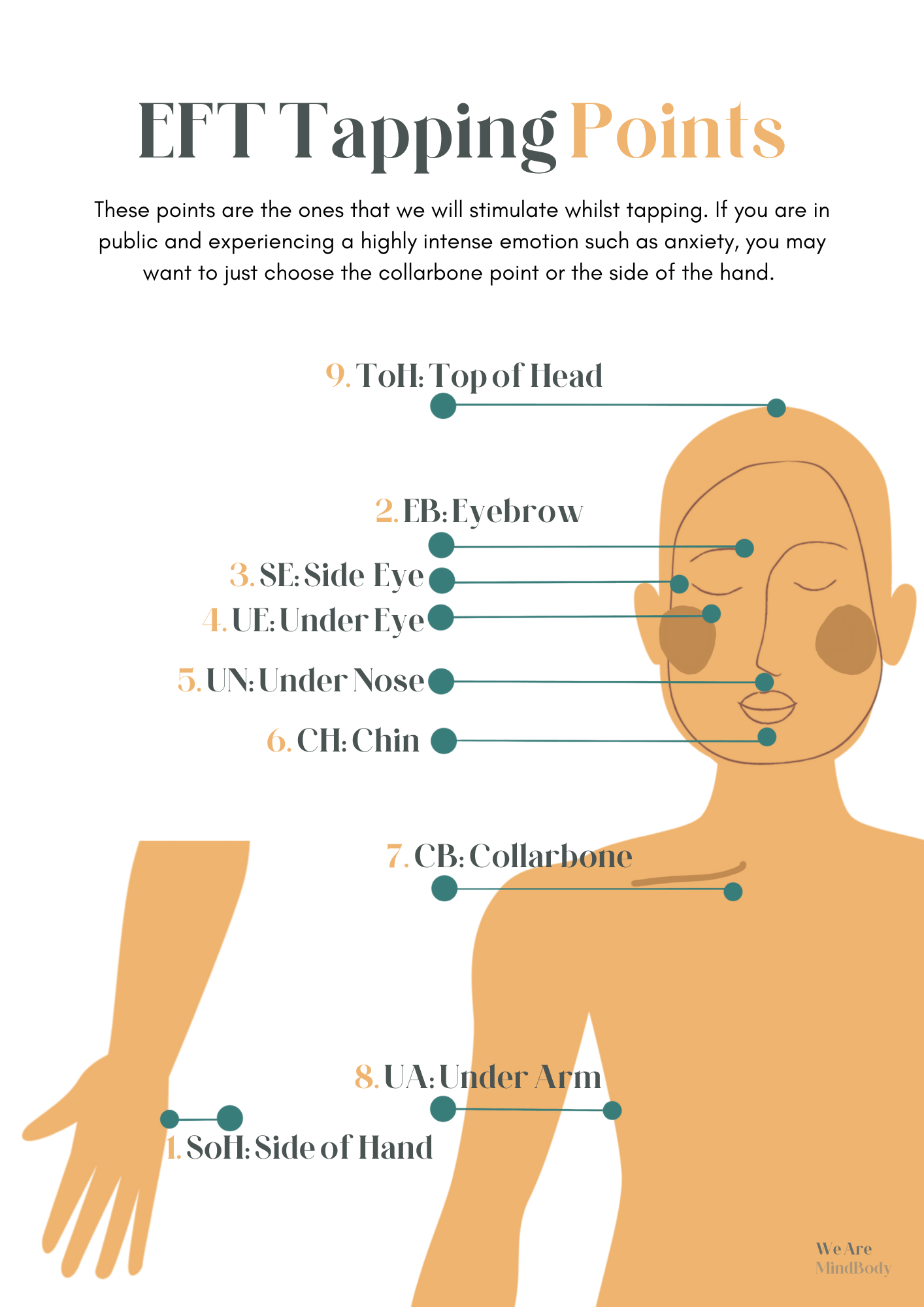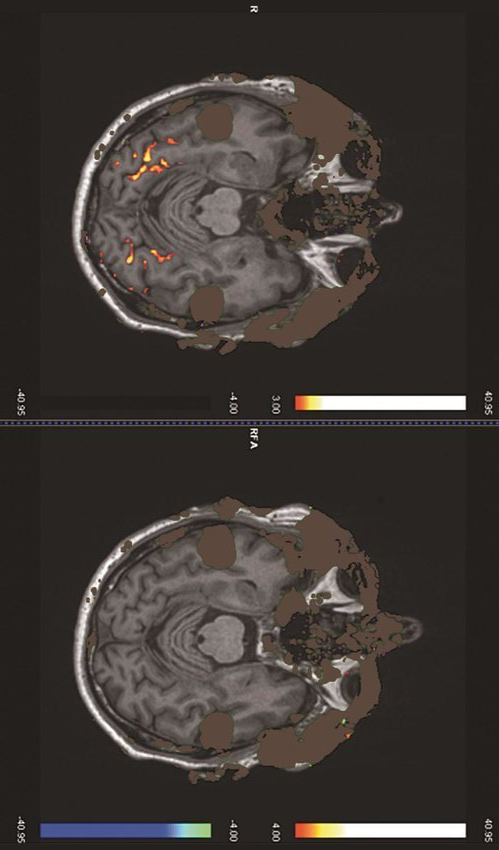Hello!
Thank you for being here.
Below you will find further details about EFT, links to studies that were cited during the workshop and how you can find out more.
You can also take advantage of 15% off your first session with the code 'MACMILLAN'
or
15% off any package using code 'MACMILLAN24'
What is EFT?
EFT is a manualised evidence-based stress reduction technique that utilises elements of cognitive therapy with physical stimulation of acupressure points (Church, 2013a). Efficacy has been established for depression, anxiety, phobias, and posttraumatic stress disorder (PTSD, Church 2013b) and changes in biochemistry such as cortisol, blood pressure, immunity and an epigenetic potential to affect gene expression associated with PTSD symptomology has been established (Bach et al., 2019; Church et al., 2012; Church et al., 2018; Stapleton et al., 2020)
Self-applied stress reduction technique
Brief, safe and effective intervention
Can be done on your own or with a practitioner
A true mind-body approach
How does it work?
"Australian research has found EFT for obesity and food cravings*and smoking** to be extremely successful and durable over time.
Efficacy has also been established for phobias, Post Traumatic Stress Disorder, Anxiety, Depression, and pain.
EFT (Tapping) is very effective for reducing anxiety, stress and other emotional issues and it works on both real and imagined stressors.
EFT significantly increases positive emotions and self esteem and resilience, and decreases negative emotional states.
EFT appears to affect the amygdala (stress centre in the brain) and hippocampus (memory centre), and both play a role in the decision process when you decide if something is a threat.
EFT has also been shown to lower cortisol levels, which is the stress hormone. Too much cortisol can result in lowered immune function and ultimately affect our physical health."
-Extract from Dr Peta Stapleton, leading researcher with 25 years experience as a registered Clinical and Health Psychologist and an Associate Professor in Psychology.
How to tap

1.
Identify your problem
2.
Rate your feeling; 0= no distress, 10 = the highest distress
3.
State your problem out loud using a set up statement x3 whilst tapping on the side of the hand (1) with 2 or more fingers
4.
Tap with 2 or more fingers on the points (2-9)
5.
Take a deep breath in and out
6.
Check in and rate, repeating if needed
20+ years of research including 250+ published journal articles, meta-analyses, fMRI brain scan and randomised control trials
Has the ability to deregulate (switch off) up to 6 genes in the body - responsible for stress symptoms and syndrome.
Currently being reviewed by the APA to be classed as 'evidence based' - led by Dr Peta Stapleton
Proven effects of cortisol, brain activity, DNA expression and blood pressure.
EFT Client Testimonials
EFT and Cancer
A number of studies have been carried out to see how EFT can be used to treat or manage the symptoms related to cancer.
The first study to acknowledge EFT as an active treatment for sr-CRCI and highlights the potential of EFT to improve quality of life, distress levels, depressive symptoms, and fatigue in cancer survivors. Published 2021 - Linked here
One study aimed to improve the mood state, menopausal symptoms, fatigue, and pain in women with breast cancer who were receiving hormonal therapies (Baker & Hoffman, 2014). After one 3 hr session of EFT per week, over 3 weeks, followed by self-application of the technique in the following 9 weeks, statistically significant improvements (at both 6 and 12 weeks follow-up) in Total Mood Disturbance (anxiety, depression, and fatigue,) occurred compared to baseline. - Linked here
Another study aimed to explore the effect of Spiritual EFT intervention to reduce of cancer pain patients (Hakam et al., 2009). The intervention group received SEFT intervention for 5-10 minutes every day over five days combined with analgesic therapy and the control group given only analgesic therapy. The combination SEFT intervention and analgesic therapy was more effective than only analgesic therapy. - Linked here
A recent preliminary 4 week study compared cancer patients who undertook EFT training to those receiving treatment as usual. Salivary cortisol swaps were taken before and after each 2hr EFT session. Overall participants in the EFT condition demonstrated a significant improvement in anxiety (p = .045). Improvement trends were apparent in self reported measures for meaning of life, Quality of Life, post-traumatic stress disorder symptoms (PTSD Checklist), and happiness were also observed (e.g. p=0.056). Every patient had a reduction in cortisol results for every session. Patients in the TAU group did not have any change across any measure. - Linked here




